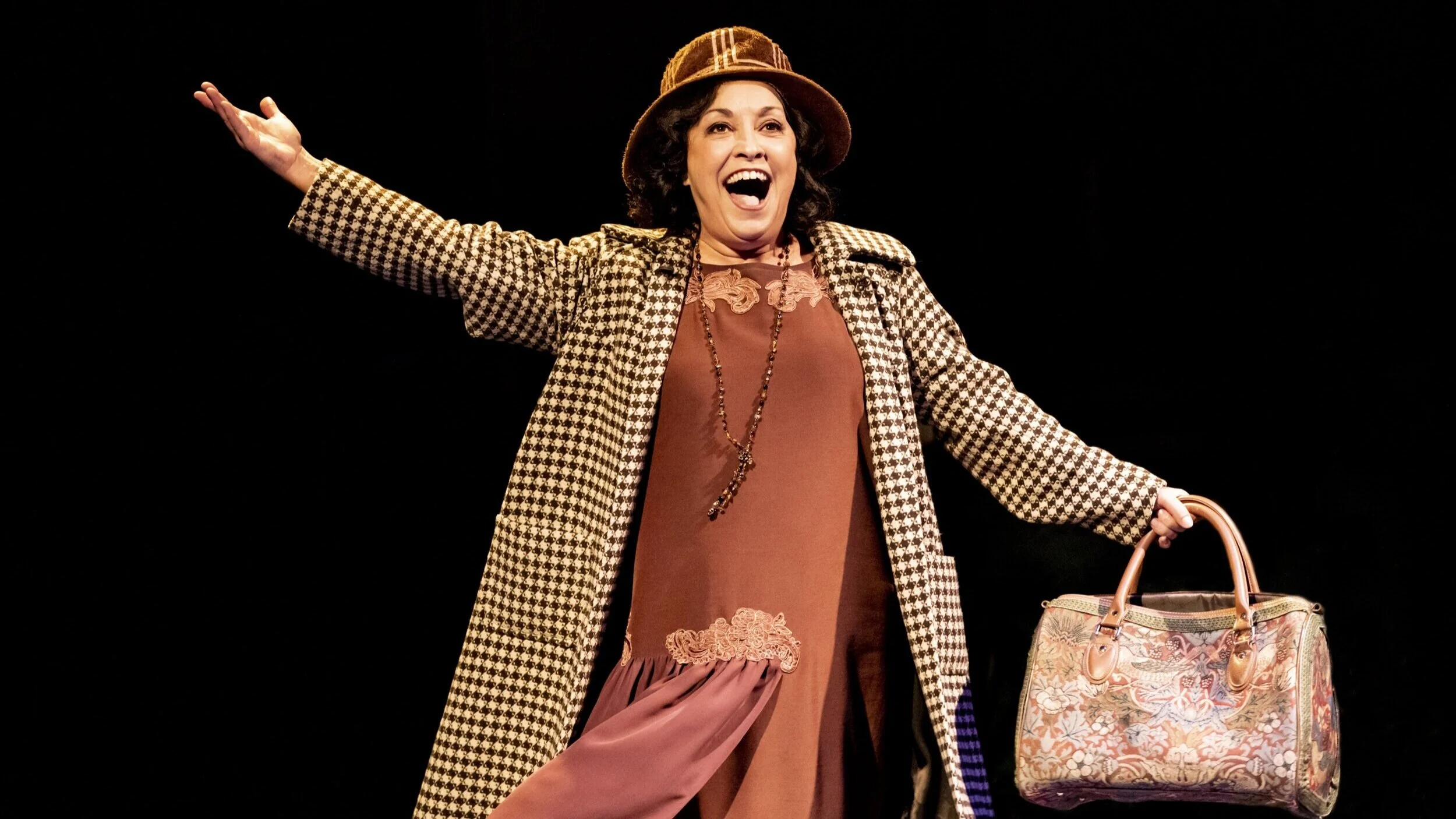Championing Untold Stories: Three Feminist Productions breaking the silence at the Royal Exchange
The recent series at Manchester’s Royal Exchange theatre has taken on the important role of platforming the unheard. Real women are taking to the stage to sing some home truths and to celebrate the hard-won fight to have a voice.
Adding another Inception-like layer to the paradox of an “untold” story placed in the spotlight, I’m here to speak even louder about those unheard stories that I went along and listened to.
These stories look to women of the past, future and fictional realms. After Birth is the untold story of what to expect; a universal warning defined by mutual identification and honesty. Queens of the Coal Age vocalises the untold story of what has been before; this is a specific anecdote that has been revived and extrapolated, to avoid being relegated to the realm of the forgotten. Finally, Queen Margaret promises to tell the untold story of what might have been: a classical character, historically grounded yet evading study, Margaret has piqued writers’ interest enough to warrant hypothesising.
Whatever the realm these female characters fit, they (and each respective crew supporting them) are making a point of making themselves heard.
This collection of performances made me wonder about the nature of the untold: how does a story become sealed off? What entity has the power to force a personal story into a vault? And at what point does any topic ripen to maturity, bursting to be heard?
Part of the Co:LAB festival, Highlight Collective took it upon themselves to burst the bubble on motherhood myths. After Birth invited an intimate audience into a womb-like room for an honest exposé. Their aim: to ‘change the language around motherhood to something more honest’.
A better-kept secret than Santa Claus himself, I was in my twenties before I learnt about what we now refer to as the “post-partum massacre”. But this production broke that news immediately:
“If I was your bathroom, you’d have called a plumber by now. I’m leaking.”
With this sense of sardonic humour, Nicola Schofield has crafted three monologues: Leak, Fear and Risk. Chronologically, these insights cover the physical discomfort of the first week of motherhood; the exhausting inner dialogue of post-natal depression; and the conflicted emotions of confessing that you need (and eventually seeking) help.
The insightful script went some way towards suggesting that these stories, feelings and concerns had been sealed away by the very person who was now professing them. Fueled by societal expectations of the virginal mother figure, but this mother was party to her own censorship.
I had feared something akin to the “Why don’t you like me” scene in Friends, but the honesty with which Sara Abanur performed normalised this most natural of stories. Indeed, sitting in a room largely filled with nodding women, some holding babies of their own, validated the facts. Amy Hailwood's direction dictates that it should be natural and normal, ‘putting the hidden issue of maternal mental health in public’.
Yet, unfortunately the question remains: how far can this (or any) production infiltrate public consciousness? After Birth occurred within a safe space, where skin-like membranes and confessionary monologues plastered the walls that contained us. Leaving into the capacious hall at the Royal Exchange, I subtly pocketed the production’s leaflet and struggled to convey what I had seen in conversation. This “untold story” had briefly seen the light, but was once again retreating from comfortable discourse.
Highlight Collective make an admirable effort to be heard; but how can they ensure that they are listened to? Indeed, how does any hidden or taboo topic break free of the vicious cycle of containment? This production, like the story it tells, remains in the fringe.
The next production I saw at RX once again welcomed an audience into the secret society of the unspoken. Not quite a mother-to-mother warning, but embracing the same sense of identification and solidarity, Queens of the Coal Age is a powerful anecdotal presentation of a protest that shouldn’t disappear into the archives.
1993 and four 'Women Against Pit Closures' occupy the Parkside Colliery pit;down-to-earth characters are modelled on the women from this true story. Writer Maxine Peake championed the inspirational women for their ‘determination and bravery, their ingenuity and passion’. But beyond ‘celebrat[ing] their efforts’, the primary focus is that Peake ‘didn’t want their protest to be forgotten’.
The theatre-in-the-round arrangement lent itself perfectly to recreating the claustrophobic atmosphere inside a coal mining pit. But rather than appearing sinister or isolated, the stage set-up, coupled with the heartwarming performances, imbued a sense of intimacy, as we shared the same space and laughter. We were welcomed into this inspiring story, previously reserved for few privileged ears. During the play we see the women start to doubt whether anyone will be interested in their tale; like the anxious new mother, our biggest censor is too often ourselves.
Peake builds this powerful comedy on the foundation that
'Protest is more potent now than ever. To me it isn't about clicking a mouse or 'liking' something. It's about getting out there and facing your oppressors, being visible'.
This quote from the writer speaks volumes about the importance of platforming unheard voices: like the ‘Queens’, Anne, Elaine, Dot and Lesley, who bravely put themselves in the firing line for their beliefs, Peake's production sings out. Without ever for a moment being didactic or preaching, Queens of the Coal Age valorises those who too often go unheard.
The Queens from Parkside Colliery wanted to make a noise and to be heard; with this production, their voices resonate through the ages. The curtain never comes down in this play; rather the fearless foursome are lifted to the lights and cheers that await above the surface - both then and now. Perhaps, like Van Gogh’s unacknowledged genius, no story worth telling will ever be heard within its own time.
The production closes with the voices of the real Queens echoing around the chamber, finally giving them their moment of recognition. I become hopeful that maybe all it takes for an untold story to become an uplifting sensation are some spotlights and a woman who is willing to listen, learn and write.
The next play to open at the Royal Exchange is set to tell the tale of Shakespeare’s forgotten queen. Queen Margaret is the widow of King Henry VI. An arguably major role in Richard III, I’ve seen the play staged with Queen Margaret as an inexplicable voodoo witchdoctor; I’ve seen the play exclude her character altogether; but at last, she is to be given her rightful time on the stage.
There is something enigmatic about the character of Queen Margaret, as she escapes a singular definition. Indeed amongst some lengthy roles, Shakespeare wrote more lines for Margaret than for the iconic role of King Lear, so why do we barely know her?!
This production promises to inhabit Margaret’s viewpoint to retell the War of the Roses ‘through the eyes of this astonishing, dangerous and thrilling woman’. Unable to ask the source, this is where untold stories become untold myths…
By virtue of inevitable separation, it’s likely that many tales go untold owing to reservations about trusting someone to share personal stories on your behalf, for fear of misinterpretation. Yet I think there comes a point where factual evidence ceases to matter as much as the very act of being heard. We may not know the innermost thoughts of Margaret, who wore so many guises: ‘wife and mother […] politician and a warrior’; but I for one am interested to see something that even resembles her story finally come to light.
Written by Jeanie O’Hare (former Chair of Playwriting at Yale and Company Dramaturg at the RSC) it’s no surprise that this piece about a strong female figure stems from a strong female figure. Like Maxine Peake, or the women of the Highlight Collective, all it takes for an untold story to be heard is a single voice armed with conviction and a pen.
We howling Harpies couldn’t agree more…
Check out what’s coming up at the Royal Exchange on their website. Read our review of Queen Margaret now.
Or get out there and tell your stories, to anyone and everyone who will listen…








